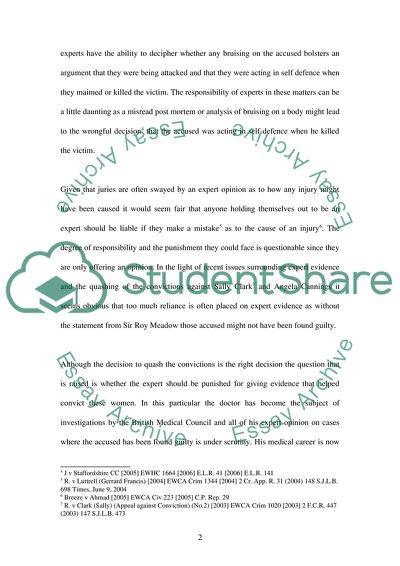Cite this document
(Discredited Expert Witnesses Have Been Used as Scapegoats for the Case Study, n.d.)
Discredited Expert Witnesses Have Been Used as Scapegoats for the Case Study. https://studentshare.org/law/1707111-a-few-discreditedexpert-witnesses-have-been-used-as-scapegoats-for-the-failings-of-the-adversial-system-of-criminal-justice
Discredited Expert Witnesses Have Been Used as Scapegoats for the Case Study. https://studentshare.org/law/1707111-a-few-discreditedexpert-witnesses-have-been-used-as-scapegoats-for-the-failings-of-the-adversial-system-of-criminal-justice
(Discredited Expert Witnesses Have Been Used As Scapegoats for the Case Study)
Discredited Expert Witnesses Have Been Used As Scapegoats for the Case Study. https://studentshare.org/law/1707111-a-few-discreditedexpert-witnesses-have-been-used-as-scapegoats-for-the-failings-of-the-adversial-system-of-criminal-justice.
Discredited Expert Witnesses Have Been Used As Scapegoats for the Case Study. https://studentshare.org/law/1707111-a-few-discreditedexpert-witnesses-have-been-used-as-scapegoats-for-the-failings-of-the-adversial-system-of-criminal-justice.
“Discredited Expert Witnesses Have Been Used As Scapegoats for the Case Study”. https://studentshare.org/law/1707111-a-few-discreditedexpert-witnesses-have-been-used-as-scapegoats-for-the-failings-of-the-adversial-system-of-criminal-justice.


